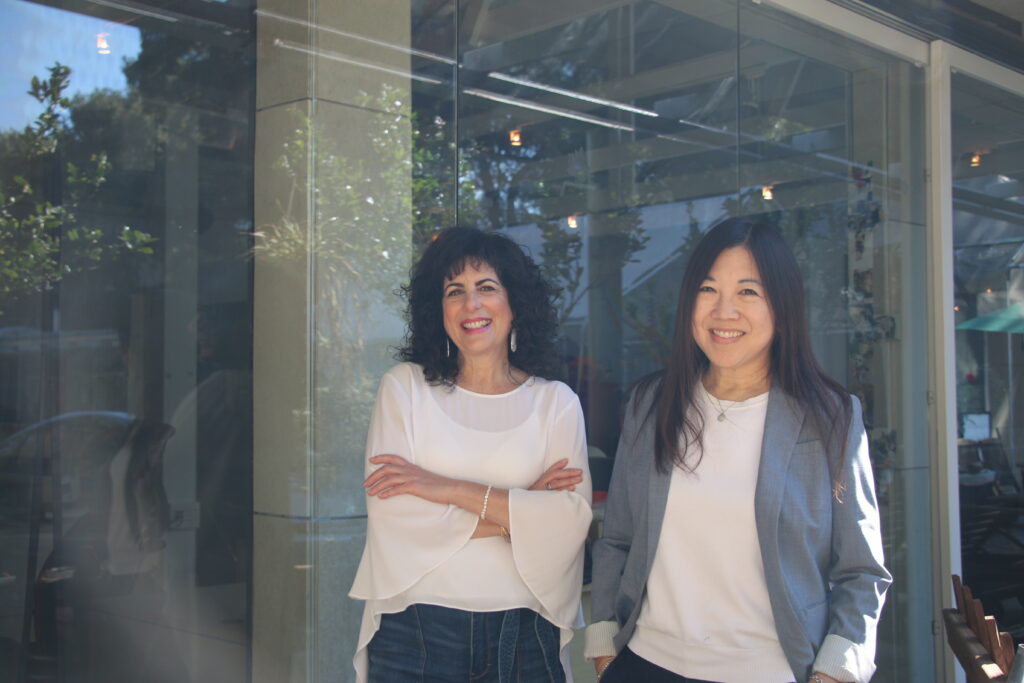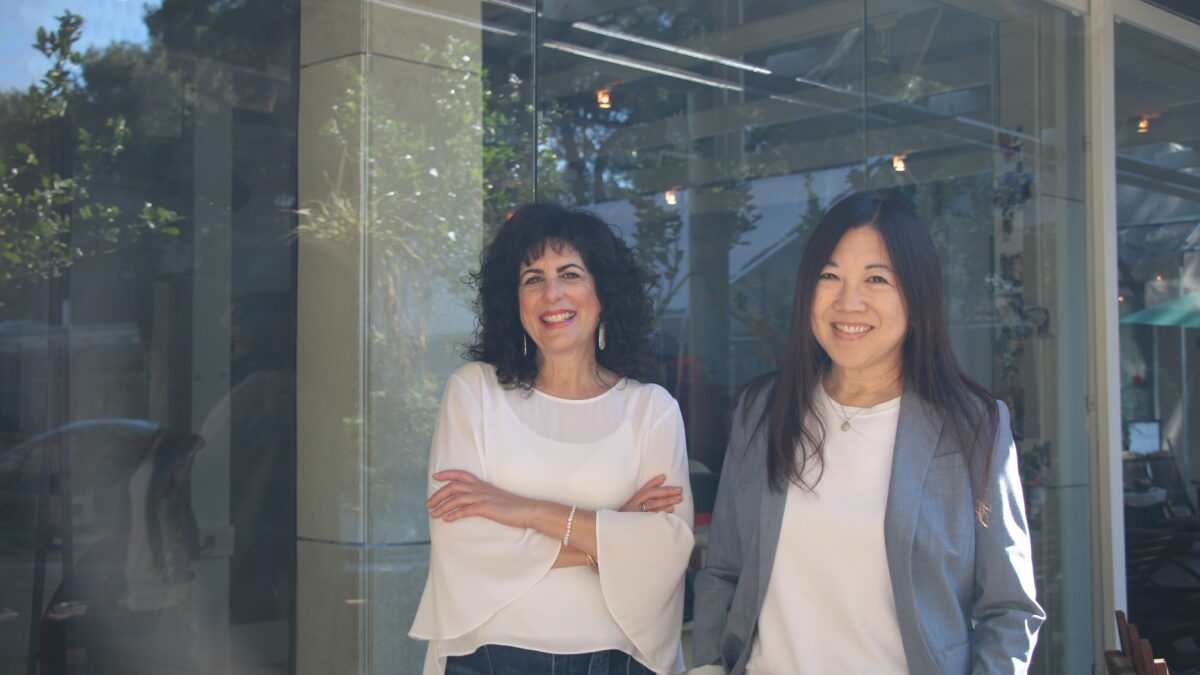
With the growing awareness of climate change, today’s businesses are under increasing pressure to operate more sustainably. Consumers and investors are looking carefully at a company’s environmental footprint, but there is also much scrutiny placed on the social impact the company has. The effect a business has on its stakeholders (the employees, the supply chain, the communities within which it operates, customers, and investors) is as important as the effect it has on the land, water, air, and resources. Victoria Charles and Laurel Joe are prepared to help organizations transition into more resilient and sustainable businesses that can weather the coming effects of climate change while minimizing unintended consequences. They have created Blue Sphere Partners, a consultancy located at Rosewood in the heart of Topanga Canyon.
Topanga local Victoria Charles has been teaching sustainability courses at Santa Monica College since 2012, and UCLA since 2018. “Since early 2021, I’ve been getting these nudges…” explained Charles. “…hearing things on TV, reading lots of books, teaching my courses… I realized I have to play bigger in this space, but what does that mean?”
She began interviewing sustainability practitioners and professionals at large companies and organizations and noticed a theme: companies that made large shifts toward sustainable practices have had a huge impact on all of the partners and suppliers connected to those businesses.
“There’s so much need for consulting in this field because most small businesses haven’t even gotten started,” said Charles. She likened this sustainability shift to the transition to technology that businesses faced many years ago. “It’s like there’s this fire coming and there’s nothing in place to evacuate,” she said. “These businesses are going to be obsolete if they don’t change.”
In 2021, Charles was approached by Laurel Joe, one of her UCLA students, who felt motivated to start working in the world of sustainability. Joe’s background is in entertainment marketing. She has worked for Dreamworks, Paramount, 20th Century Fox, and most recently, Disney. While at Paramount, Joe worked on Al Gore’s 2006 film An Inconvenient Truth and became increasingly turned into climate change. She began volunteering, donating and had started taking sustainability classes, but a conversation with a friend helped her find a new direction.
“We were walking with a friend on the beach, and she said ‘You know, we only have seven years to turn this thing around— what are you personally doing about it? that just really stuck with me and I realized I should use my marketing skills to try to change minds and change organizations to be more sustainable,” Joe explained.
“[In the entertainment industry] I got to work on everything from social media to Super Bowl spots and was involved in cross-functional marketing communication across all the different teams in the organization,” she said. “A lot of that is very transferable to sustainability because what needs to happen is a collective effort that’s not just coming from the CFO’s office, or just coming from the operation side… it really takes every functional area of the business.”
Today’s consumers aren’t forgiving about environmental and social harm caused by businesses and organizations. In the digital age, any customer that has a bad experience can tarnish a corporation’s reputation, impacting consumer behavior and highlighting risk for investors. According to Joe, “If you’re not managing your social impact or if you’re doing a lot of harm to the environment, nowadays it’s really visible and because of social media, it spreads like wildfire. And…” she continued, “the social aspect is just as important as the environmental impact.”
The European Union has mandatory ESG (Environmental, Social, and Governance) reporting to allow for transparency and disclosure for investors. The U.S. does not yet have a uniform evaluation of sustainable investing and finance, but international sustainability standards are expected by the end of the year. A thorough examination of how a company impacts the environment, how it helps or harms communities and its employees, where and how it sources materials, how its management operates, as well as the diversity of its board members, partners, and consumers can make a company more resilient. ESG reporting is a means to build trust and purpose with consumers which inspires customer loyalty, while offering transparency for investors.
Large corporations are pressured to make changes which, in turn, affect their partners and suppliers. Blue Sphere Partners supports the small to midsize companies that will be affected tangentially. Charles said, “We want to help smaller businesses to be prepared to answer those requests from their partners, but also to really change their mindset. To start thinking not only about maximizing profit, but maximizing value for their stakeholders—how to sustain their business as the climate changes and how to minimize those risks.”
Charles explains that Blue Sphere Partners uses ESG assessment tools and water, waste, and energy audits to uncover weaknesses within the company and offers sustainability strategies along with purpose-driven marketing. They can also help businesses prepare and pass B Corp Certification, the highest standard of ESG evaluation.
Charles pointed out other benefits to evaluating ESG factors, “It helps with efficiency. Companies are usually not very efficient… from their management practices to a leaky faucet.” She said, “All businesses will be impacted by climate change and a deep exploration of ESG can highlight potential risks, which also improves efficiency.”
One often overlooked aspect of efficiency is high turn-over rates. According to Forbes Magazine, the Cone Communications Millennial Employee Study found that 64 percent of Millennials won’t take a job if the employer doesn’t have a strong ESG profile and 83 percent would be more loyal to a company that helps them contribute positively to social and environmental issues. By 2025, 75 percent of the workforce will be Millennials. A study by WeSpire found that Gen Z is the first generation to prioritize purpose over salary, highlighting the need for a positive corporate reputation, transparency, and for a story of purpose to be woven into the fabric of the business.
Blue Sphere Partners positions itself as a strategic partner to small to midsize businesses to help them through their transition to sustainability. “We are using a bird’s eye view to shift every aspect of the company to a sustainability mindset,” Charles explained, “We help them capture the culture and change the DNA of the organization. We will meet them where they are, while offering a broader view of where they are on their sustainability journey.”





